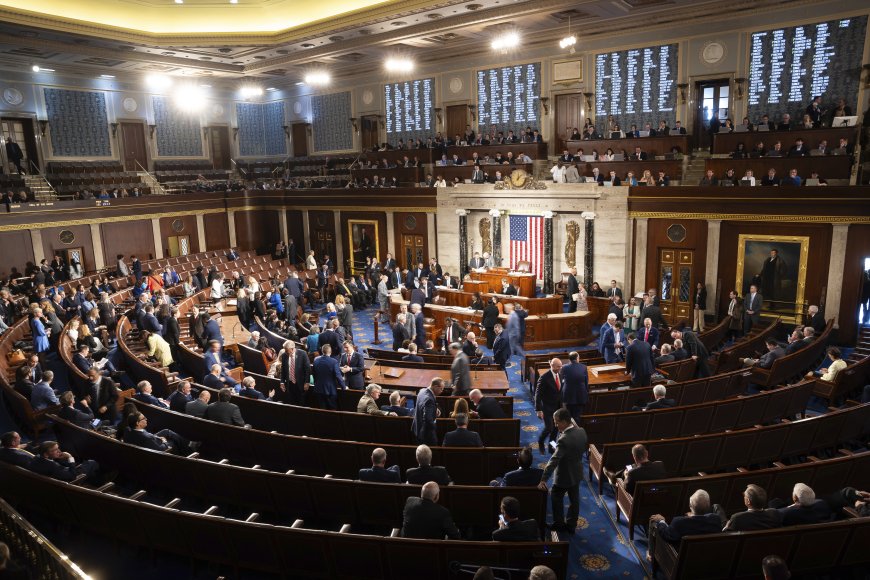House GOP loses key fundraising advantage
The GOP has relied on super PACs to fill financial gaps as they fight for control of the House. Now Democrats’ surge has put them neck-and-neck.

Big donors are flooding the fight for control of the House — and, in the final stretch, Democrats have been outraising Republicans.
It’s a stunning reversal: Republican super PACs have been dominant in recent cycles and crucial to helping candidates who have struggled to raise as much as their Democratic opponents. But now that advantage has disappeared in the House.
Congressional Leadership Fund, the largest GOP group dedicated to winning the House, announced Tuesday that it raked in $81.4 million from July to September, its highest quarterly total. It’s a particularly impressive number considering Republicans lost their single-best fundraiser about a year ago, when Kevin McCarthy was dethroned as speaker.
But CLF didn’t come close to beating its Democratic counterpart. House Majority PAC said it raised roughly $99 million in the third quarter, with $69 million in September alone.
Both super PACs have now raised about $210 million this cycle — a warning sign for Republicans who have been relying on their biggest donors to keep them competitive across battlegrounds.
"HMP could not be more proud to have bested our Republican counterparts in Q3, erasing the GOP Super PAC advantage as the candidate fundraising gap continues to grow for Democrats,” said Mike Smith, the group’s president. “In the four weeks leading up to Election Day, we believe our record-breaking fundraising and strategic advantage in reserving crucial television and digital time at optimal rates will allow us to take back the House in November."
Republicans have long believed they don’t need to match Democrats dollar-for-dollar on TV. After replacing McCarthy, Speaker Mike Johnson has worked to develop a relationship with donors, and he kept in place Dan Conston, the operative McCarthy tapped to lead CLF.
“We’re continuing to raise necessary resources and strategically deploying them to make a real impact in the pivotal races that will shape the Majority,” Conston said in a statement.
Still, there’s only so much outside groups can do. Candidates can purchase TV airtime for much less than super PACs, making it far less efficient for outside groups to buy ads than the campaigns. Republicans are generally more reliant on outside groups because their candidates often don’t have enough funds to pay for their own ads
Since 2018, Democratic candidates have largely raised far more than their opponents. So far this year more than 10 Democratic challengers have already announced raising more than $2 million in the last quarter.
For example, Janelle Bynum, the Democrat challenging Rep. Lori Chavez-DeRemer (R-Ore.) reported raising $3.4 million in the third quarter. Laura Gillen, the Democrat challenging Rep. Anthony D’Esposito (R-N.Y.) raised $2.4 million and Derek Tran, the Democrat challenging Rep. Michelle Steel (R-Calif.) raised more than $2 million.
With Republican House candidates consistently trailing Democrats, CLF has played a key role in filling the gap.
In the 2020 cycle, both CLF and HMP were relatively close in fundraising. CLF raised $165 million to HMP's $160 million. But Republicans surged in 2022, and CLF maintained a steady cash advantage, raising $260 million over the cycle to the Democratic group’s $182 million.
And that cash has significant implications for campaigning down the final stretch. In 2022, CLF’s cash advantage meant it was able to spend $141 million on independent expenditures in House races from Oct. 1 through Election Day, compared to $121 million from HMP, according to FEC data. CLF outspent HMP in 32 of 47 races in which they were both spending.
But that dynamic might be reversed this year. HMP, flush with cash, is regularly dropping new rounds of reservations. It currently has reserved $52 million more than CLF in future TV and radio ad bookings from now through Election Day, according to data from AdImpact, which tracks political spending. Both sides, of course, can still buy additional ads, changing that split before November.











































